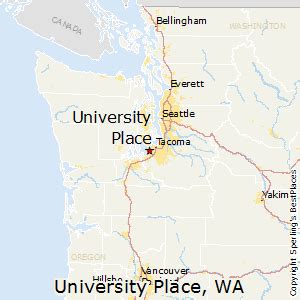Duties Of A Citizen Of The United States

The duties of a citizen of the United States are multifaceted and far-reaching, encompassing both moral and legal obligations. At the heart of being an American citizen lies a delicate balance between individual rights and responsibilities to the community and the nation. Understanding these duties is essential for fostering a sense of patriotism, ensuring the smooth functioning of democracy, and promoting societal well-being. In this article, we will delve into the primary duties of a U.S. citizen, exploring their significance, implications, and the roles they play in sustaining the fabric of American society.
Key Points
- Respect and obey the law, including federal, state, and local laws and regulations.
- Participate in the democratic process by voting, engaging in public discourse, and running for public office when possible.
- Defend the country, if necessary, through military service or other forms of national service.
- Stay informed about current events, political issues, and the functioning of government at all levels.
- Pay taxes honestly and on time to contribute to the public purse and support public goods and services.
Legal Duties

American citizens have several legal duties that are paramount to their citizenship. Foremost among these is the obligation to respect and obey the law. This encompasses not just federal laws but also state and local regulations. Compliance with the legal framework of the country ensures order, stability, and the protection of individual rights. Another crucial legal duty is the payment of taxes. Taxes are the lifeblood of any government, providing the revenue necessary to fund public goods and services that are essential for the well-being of citizens, such as education, healthcare, infrastructure, and national defense.
Voting and Civic Engagement
Voting is perhaps the most fundamental right and duty of a citizen in a democratic republic like the United States. It is through voting that citizens express their preferences for how they wish to be governed, choosing leaders who will make decisions on their behalf. Beyond voting, civic engagement is also a vital duty. This includes participating in public discourse, attending community meetings, joining advocacy groups, and considering public service. Such engagement ensures that the government remains accountable to the people and that policies reflect the will and needs of the citizenry.
| Category of Civic Duty | Examples of Participation |
|---|---|
| Voting | Participating in local, state, and federal elections |
| Civic Engagement | Community volunteering, public advocacy, and running for office |
| Public Service | Military service, jury duty, and other forms of national service |

Moral and Social Duties

Beyond legal obligations, citizens also have moral and social duties that contribute to the well-being of their communities and the nation as a whole. These include respecting the rights of others, promoting social justice, and engaging in volunteer work or community service. By fulfilling these duties, citizens help foster a more equitable, compassionate, and united society. Education is another critical area where citizens have a moral duty to participate, either by pursuing their own education to become informed and active members of society or by supporting educational institutions and policies that aim to provide quality education for all.
Education and Community Service
Education serves as a cornerstone of a functioning democracy, enabling citizens to make informed decisions and participate meaningfully in the democratic process. Thus, it is the moral duty of citizens to value, support, and pursue education. Community service and volunteer work are also essential moral duties, as they help address social issues, support vulnerable populations, and strengthen community bonds. By contributing their time, skills, and resources to the community, citizens demonstrate their commitment to the common good and help build a more resilient and caring society.
In conclusion, the duties of a U.S. citizen are comprehensive and multifaceted, encompassing legal, moral, and social responsibilities. By understanding and fulfilling these duties, citizens play a vital role in preserving the integrity of American democracy, fostering a sense of community, and ensuring the prosperity and well-being of the nation. As the United States continues to evolve and face new challenges, the importance of active, engaged, and responsible citizenship will only continue to grow.
What is the most important duty of a U.S. citizen?
+While all duties are significant, voting is often considered paramount as it directly influences the direction of the country and the selection of leaders who will make decisions on behalf of the citizens.
How can citizens balance their individual rights with their responsibilities to the community?
+Citizens can achieve this balance by being informed about their rights and duties, engaging in civic activities, and making conscious choices that respect the rights of others while fulfilling their obligations to the community and the nation.
What role does education play in fulfilling the duties of a U.S. citizen?
+Education is critical as it enables citizens to make informed decisions, understand their rights and responsibilities, and participate meaningfully in the democratic process. It also equips citizens with the skills and knowledge necessary to contribute to the economy and society in positive ways.



